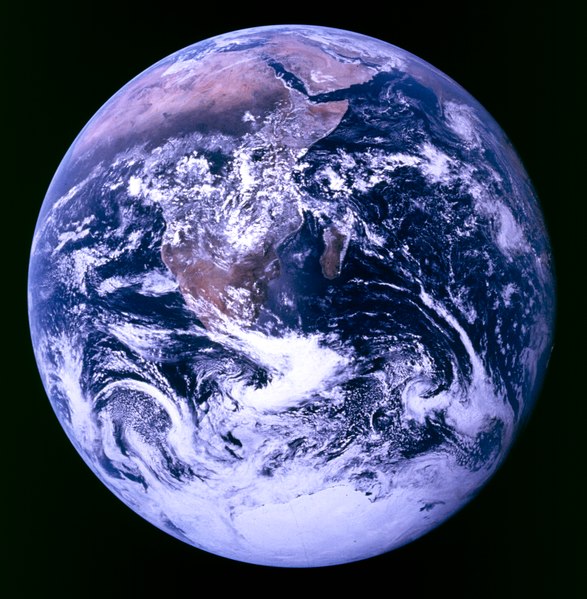Is the Earth's Rotation Slowing?
Is the earth's rotation slowing? Yes, it is, but it provides no evidence against an old earth
A recent article in science news announces a new discovery about the earth's rotation. Apparently the speed of the earth's rotation varies on a 5.9 year cycle. Research through decades of data has shown it has maintained precisely that cycle for 50 years.
Now, let me ask you a question? Is it really possible that people who have studied the speed of the rotation of the earth so carefully, and who know that the earth's rotation is slowing, have not done the math to determine whether this slowing is evidence for a younger earth than we thought?
Of course they have.

Photo of Earth from Apollo 17
Courtesy of Wikimedia Commons
The Navy explains the way that time is kept and who tracks the speed of the rotation of the earth ...
The of the International Earth Rotation Service (IERS), located at the USNO, monitors the Earth's rotation. Part of its mission involves the determination of a time scale based on the current rate of the rotation of the Earth. ...
The Earth is constantly undergoing a deceleration caused by the braking action of the tides. Through the use of ancient observations of eclipses, it is possible to determine the average deceleration of the Earth to be roughly 1.4 milliseconds per day per century.
Okay, let's do a little math. In 4.5 billion years, there are 45 million centuries (4.5 billion/100). Each century, the earth slows 1.4 milliseconds, which is .0014 seconds.
Now we multiply .0014 seconds per century for 45 million centuries, and we get 63,000 seconds. There are 3,600 seconds in an hour, so the day would have been 17.5 hours shorter, or 6.5 hours 4.5 billion years ago.

"The big, blue marble"
by NASA and courtesy of Wikimedia Commons
That's a fast rotation, and the reader who emailed me with this "young earth" argument suggested that this would greatly affect wind speeds because of the Coriolis effect. However, there was no atmosphere at that time, and wind wouldn't have mattered because there was probably no life at that time.
If we go back 600 million years, to approximately the time multicellular life arose, then then we're just going back 6 million centuries, 8,400 seconds of slowing, which is 2 hours, 20 minutes. A 21-hour-plus day during the pre-Cambrian would not have affected the development of life.
See more creation evidence.





